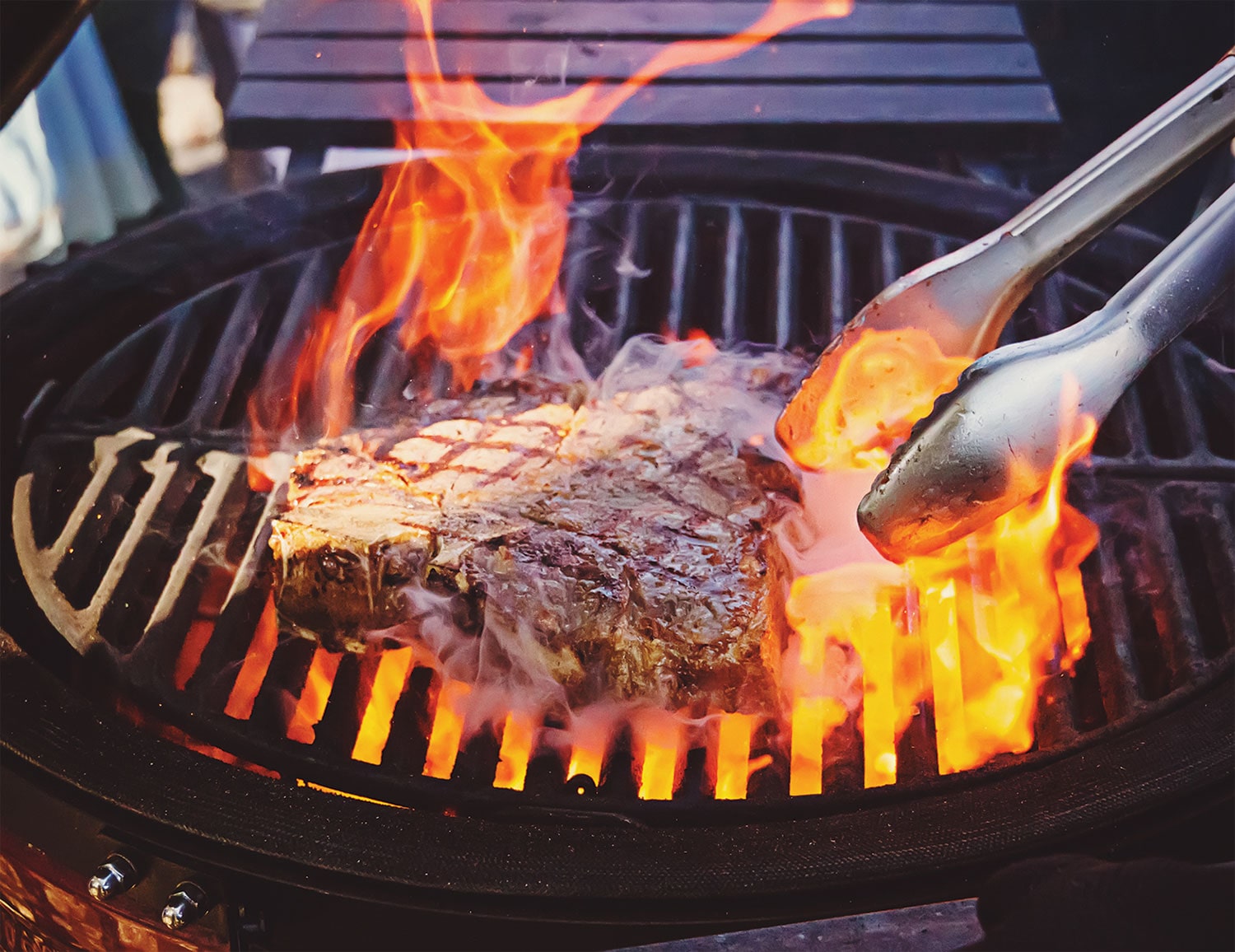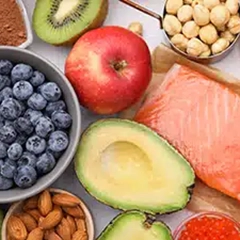DURING THE LONG, WARM DAYS OF SUMMER, millions of people will enjoy barbecues courtesy of their outdoor grills. For many, this kind of cooking means eating processed meats, such as hot dogs and bratwurst, which has been strongly associated with colorectal cancer risk. Red meat, another barbecue staple, may also be linked to increased risk of cancer.
Even the grilling process may pose a risk. When high heat is applied to amino acids, sugars, and creatine or creatinine in meat, heterocyclic amines (HCAs) are formed. Research shows that HCAs produce tumors in rodents, though a definitive link has not yet been proved in humans.
Healthy Heat
To avoid relying solely on an open flame to cook your meat, close the lid of your grill to build heat via convection, suggests Stephen Freedland, the director of the Center for Integrated Research in Cancer and Lifestyle at Cedars-Sinai Medical Center in Los Angeles. If you’re keen on making sure your food is well done, consider cooking it longer at a lower temperature.
Applying an open flame to meat produces not only the blackened char often associated with grilling but also polycyclic aromatic hydrocarbons (PAHs), says urologist Stephen Freedland, the director of the Center for Integrated Research in Cancer and Lifestyle at Cedars-Sinai Medical Center in Los Angeles. Fat dripping from meat cooking on an open grate prompts high flames that cause char. Ingesting PAHs may increase cancer risk, so Freedland suggests cooking on aluminum foil to create a barrier between the food and the flame.
Grilling any flesh—red meat, poultry or seafood—will produce HCAs and PAHs, says Wendy Kaplan, a registered dietitian nutritionist who specializes in oncology. Trading meat for grilled fruits and vegetables is a healthier choice because they do not produce HCAs. Mixing plant-based foods with meat—such as a burger made from lean ground chicken and quinoa or a veggie skewer with a few pieces of meat—can lessen exposure to these chemicals.
Freedland warns that simply adding a roasted red pepper to a charred double-decker burger won’t do much good. “But if you can do the vegetable instead of those other things, I think you’re going to be better off,” he says.
Cancer Today magazine is free to cancer patients, survivors and caregivers who live in the U.S. Subscribe here to receive four issues per year.






